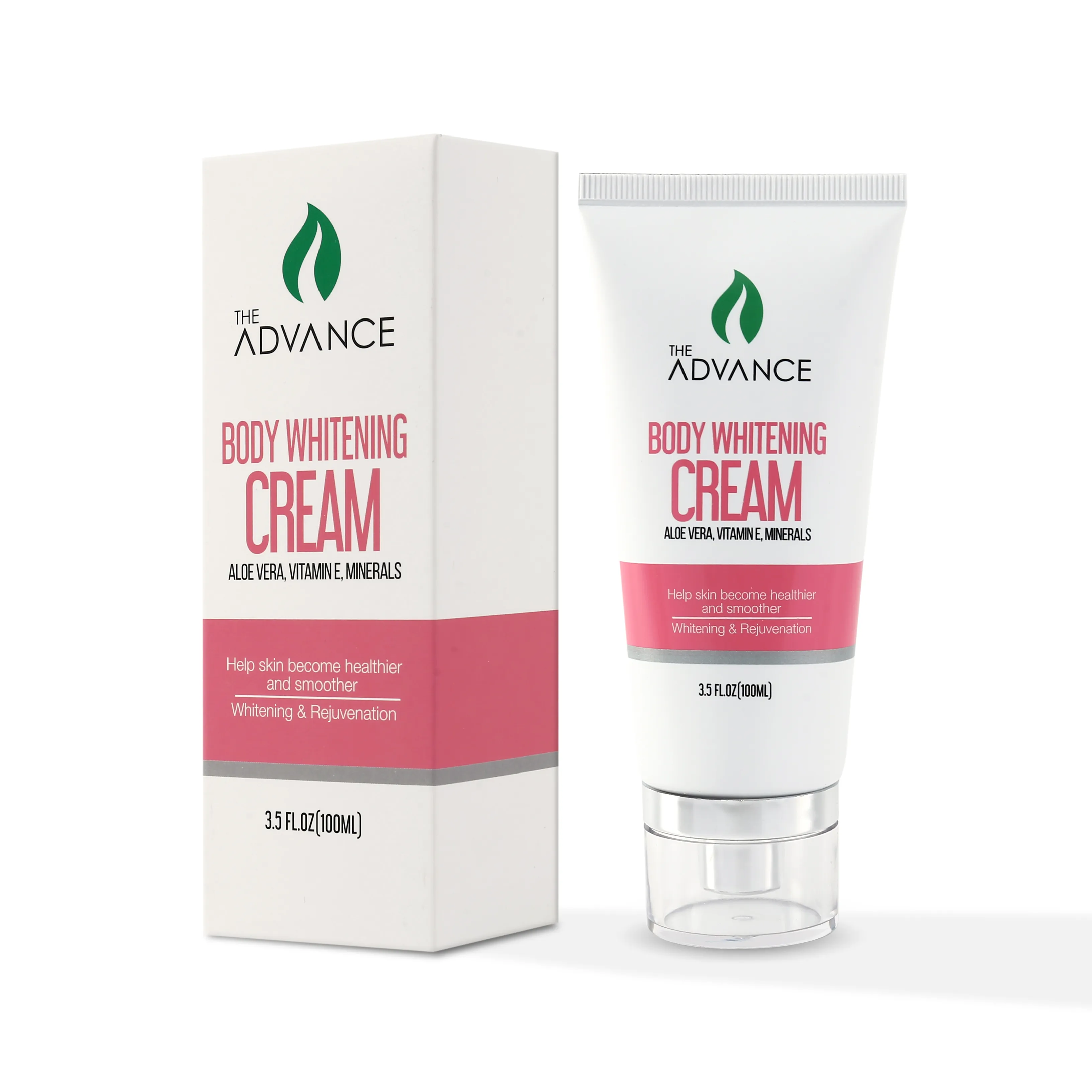What are Whitening Cream Ingredients?
Whitening creams have gained popularity for their ability to address uneven skin tone, hyperpigmentation, and dark spots. The effectiveness of these creams heavily relies on their ingredients. These active components work synergistically to inhibit melanin production, the pigment responsible for skin color. Understanding these ingredients is crucial for anyone seeking to improve their skin’s appearance and achieve a brighter, more even complexion. The best whitening cream ingredients are often those that are scientifically proven to work, but not all ingredients are created equal. This guide will help you navigate the world of whitening cream ingredients, helping you make informed choices for your skincare routine and find the best product for your skin.
Key Whitening Cream Ingredients
Several ingredients are frequently included in whitening creams due to their proven efficacy in reducing hyperpigmentation. These ingredients work in various ways, from inhibiting melanin production to promoting cell turnover. The selection of these ingredients often depends on skin type, concerns, and the desired results. Some ingredients are more potent and should be used with caution, while others are gentler and suitable for all skin types. The following are seven of the most effective and popular ingredients found in whitening creams.
Vitamin C
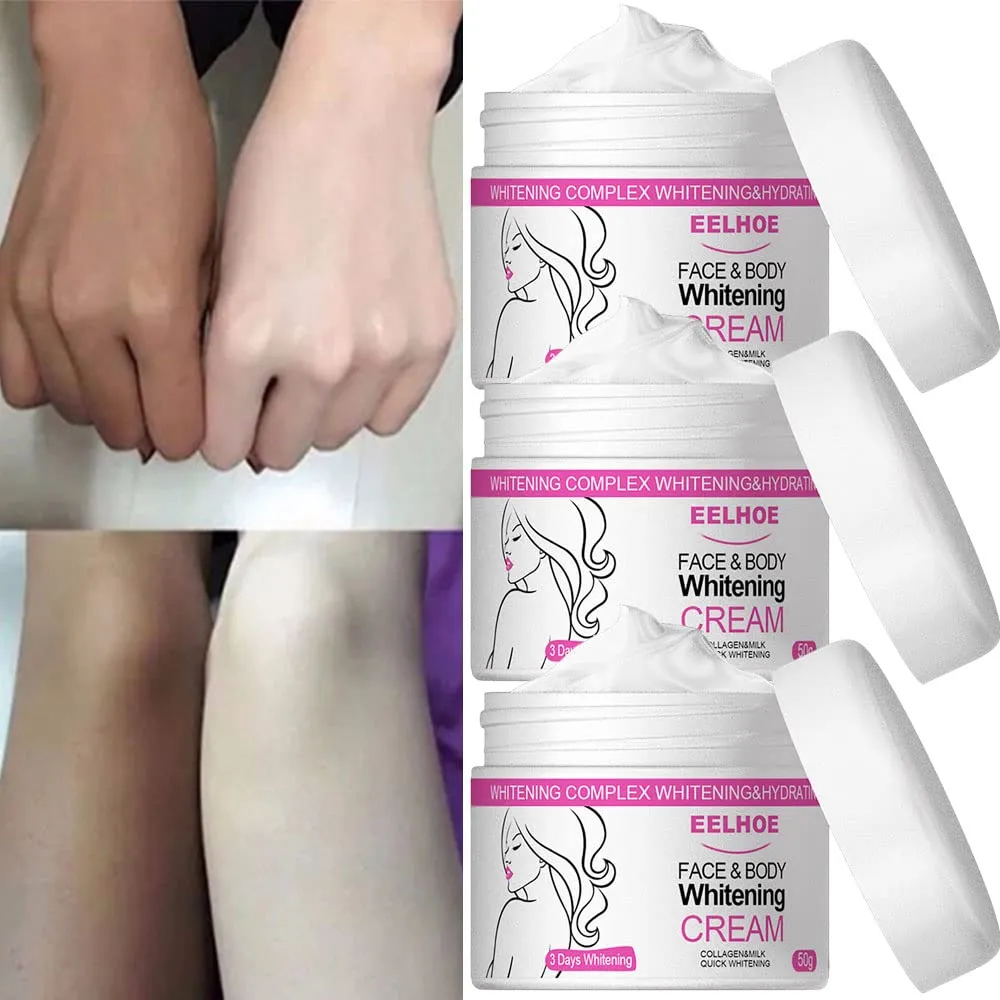
Vitamin C is a potent antioxidant that plays a vital role in skin health and radiance. It lightens the skin by inhibiting tyrosinase, an enzyme that helps produce melanin. Additionally, it protects the skin from free radical damage caused by environmental factors like UV rays and pollution. Vitamin C also supports collagen production, contributing to firmer, more youthful-looking skin. When choosing products with Vitamin C, look for formulations with L-ascorbic acid, which is the most stable and effective form. Start with a lower concentration to avoid irritation and gradually increase it as your skin adapts. Regular use of Vitamin C can lead to a brighter and more even skin tone. The image in this section could be of an orange or a serum bottle with the vitamin C label.
Niacinamide
Niacinamide, a form of vitamin B3, is a versatile ingredient that offers various benefits for the skin, including skin brightening and improving the skin barrier function. It reduces hyperpigmentation by interfering with the transfer of melanosomes to skin cells. Niacinamide also helps to minimize pores, regulate oil production, and reduce redness and inflammation. This ingredient is generally well-tolerated by most skin types, making it a great choice for individuals looking for gentle yet effective skin-whitening solutions. For optimal results, use products with a concentration of 2-5% niacinamide. Consistent use can lead to a more balanced and radiant complexion. The image in this section could be of a product with niacinamide, or a close-up of a person with smooth skin.
Retinoids
Retinoids, derived from vitamin A, are powerful ingredients known for their ability to promote cell turnover and improve skin texture. They work by accelerating the shedding of dead skin cells, which helps to reduce hyperpigmentation and reveal a brighter complexion. Retinoids can also stimulate collagen production, reducing the appearance of fine lines and wrinkles. However, retinoids can cause irritation, dryness, and sun sensitivity, so it’s important to start with a low concentration and gradually increase it as your skin adapts. Always wear sunscreen when using retinoids. Common forms include retinol and tretinoin. The image in this section could show a product containing retinol.
Alpha Arbutin
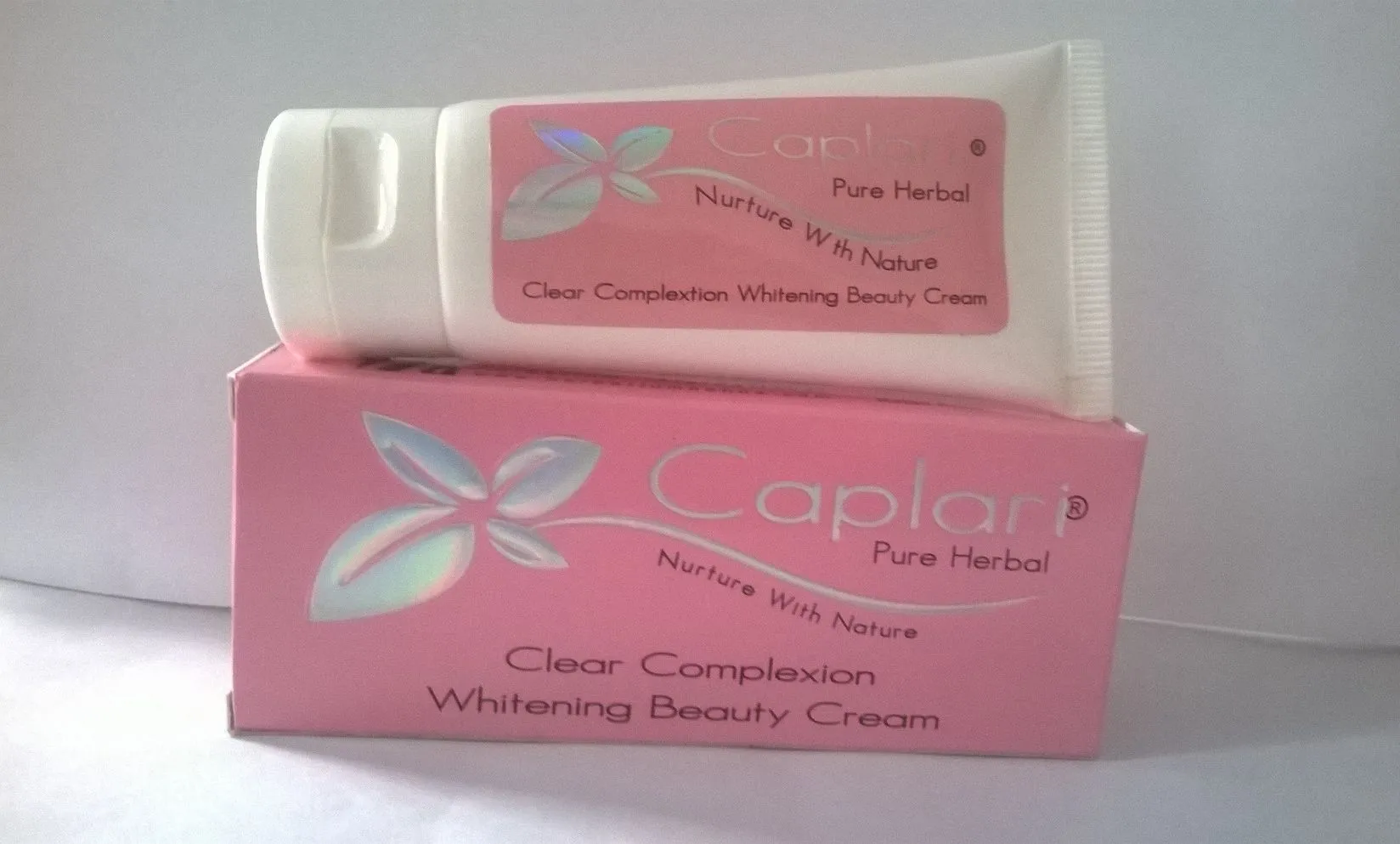
Alpha arbutin is a natural skin-brightening agent derived from the bearberry plant. It works by inhibiting tyrosinase, the enzyme responsible for melanin production. Alpha arbutin is considered a safer and more effective alternative to hydroquinone, as it has fewer side effects. It is known for its ability to fade dark spots, even out skin tone, and reduce the appearance of acne scars. Alpha arbutin is often used in serums and creams and is suitable for most skin types. Incorporate it into your skincare routine for a more radiant complexion. The image could showcase alpha arbutin product.
Azelaic Acid
Azelaic acid is a naturally occurring acid with anti-inflammatory, antibacterial, and skin-brightening properties. It works by inhibiting tyrosinase and reducing the production of melanin. It is effective in treating acne, rosacea, and hyperpigmentation. Azelaic acid also helps to exfoliate the skin and unclog pores, leading to a clearer complexion. This ingredient is generally well-tolerated and can be used by most skin types, including sensitive skin. It is often found in creams and serums and can be used twice daily. The image could be a close-up photo of a skincare product containing this ingredient.
Licorice Extract
Licorice extract contains glabridin, a compound known for its skin-lightening and anti-inflammatory properties. It inhibits tyrosinase and reduces the production of melanin, thereby helping to fade dark spots and hyperpigmentation. Licorice extract also has antioxidant properties, protecting the skin from damage caused by free radicals. It is generally safe and suitable for all skin types. It’s often found in creams and serums and can be used to brighten skin and even out skin tone. The image could be of licorice root or skincare product with licorice extract.
Kojic Acid
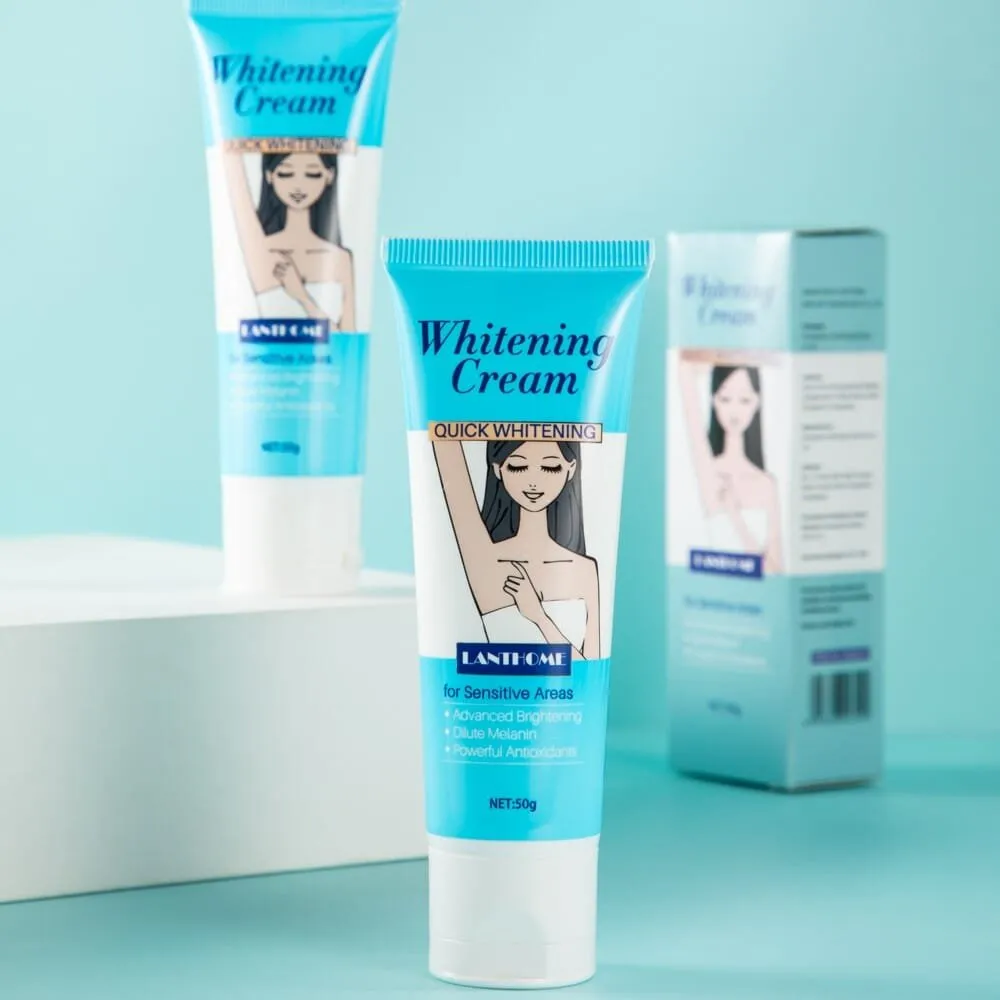
Kojic acid is a by-product in the fermentation process of malting rice. It is an effective skin-lightening agent that inhibits tyrosinase, the enzyme responsible for melanin production. Kojic acid is commonly used to treat hyperpigmentation, dark spots, and melasma. However, it can cause irritation in sensitive skin, so a patch test is recommended before widespread use. It is often formulated in creams, serums, and soaps. When using products containing kojic acid, it is essential to wear sunscreen, as it can increase sun sensitivity. The image could be of Kojic acid.
How to Choose the Right Whitening Cream
Selecting the right whitening cream involves careful consideration of your skin type, concerns, and the ingredients in the product. It is essential to understand your skin’s unique needs and sensitivities to choose a cream that will be both effective and safe. Always read the ingredient list carefully and research the potential benefits and risks of each component. This is a crucial step to avoid adverse reactions and achieve the desired results. Always start with a patch test to check for any adverse reactions and consult with a dermatologist if you have any doubts or specific skin conditions. The following steps can help you make the right choice.
Understanding Your Skin Type
Knowing your skin type (oily, dry, combination, or sensitive) is the first step in choosing the right whitening cream. People with oily skin might benefit from lightweight, non-comedogenic formulas that won’t clog pores. Those with dry skin should look for creams that provide hydration and contain moisturizing ingredients. Sensitive skin requires gentle formulas with fewer potential irritants. For combination skin, it is essential to find a product that addresses multiple needs without over-drying or causing breakouts. Choosing the right cream for your skin type maximizes the product’s effectiveness and minimizes potential side effects. Look for products specifically designed for your skin type and always introduce new products gradually. The image here can be a graphic or photo that describes different skin types.
Reading the Ingredient List
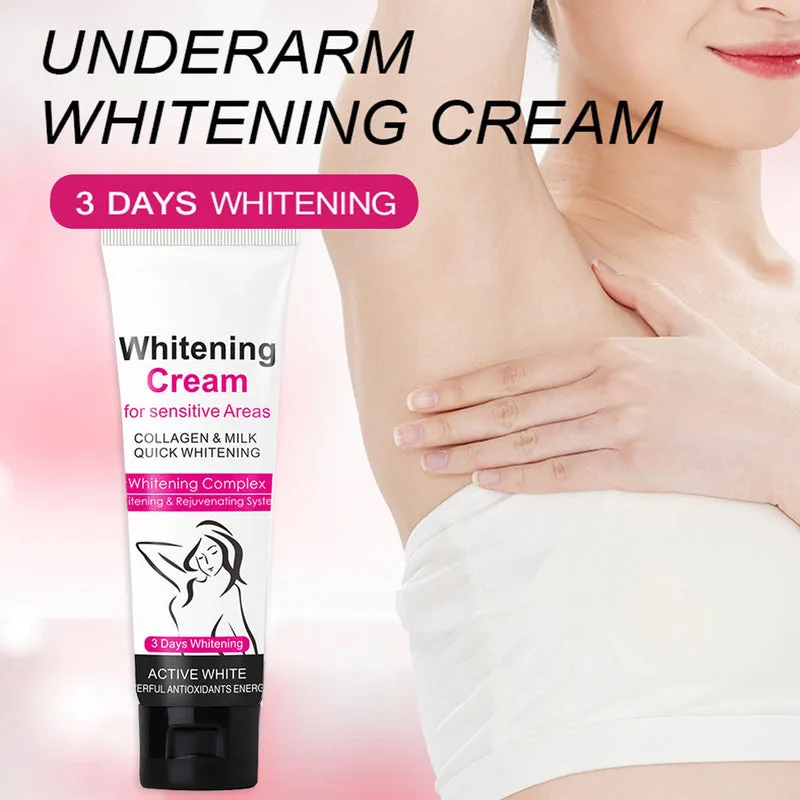
Carefully examining the ingredient list is crucial. Look for the active ingredients discussed earlier like Vitamin C, niacinamide, retinoids, alpha arbutin, azelaic acid, licorice extract, and kojic acid. Avoid products with ingredients you are allergic to or known irritants like artificial fragrances or alcohol. Consider the concentration of the active ingredients. Higher concentrations aren’t always better, especially for sensitive skin. It is also helpful to look for supporting ingredients that provide hydration, antioxidant benefits, or other beneficial properties. Educate yourself on common ingredients and their potential side effects. The product image could be a close-up of the ingredient list.
Avoiding Harmful Ingredients
Certain ingredients should be avoided. Hydroquinone, while effective, can cause skin irritation, ochronosis, and other adverse effects. Mercury is another dangerous ingredient often found in unregulated products; it can cause serious health issues. Artificial fragrances and certain preservatives can also irritate the skin. Always opt for products from reputable brands that disclose all ingredients and adhere to safety standards. Research products before you buy them and look for third-party testing to ensure safety and efficacy. If a product seems too good to be true, it probably is. The image here can be of ingredients to avoid.
The Importance of Sun Protection
Regardless of the ingredients in your whitening cream, protecting your skin from the sun is paramount. UV rays can worsen hyperpigmentation and counteract the effects of whitening treatments. Sun protection should be a non-negotiable part of your daily routine. This means applying sunscreen every morning, even on cloudy days, and reapplying it every two hours, especially if you are outdoors. Choosing a broad-spectrum sunscreen with an SPF of 30 or higher is recommended. The image here can show a person applying sunscreen or a bottle of sunscreen.
Why is Sunscreen Important?
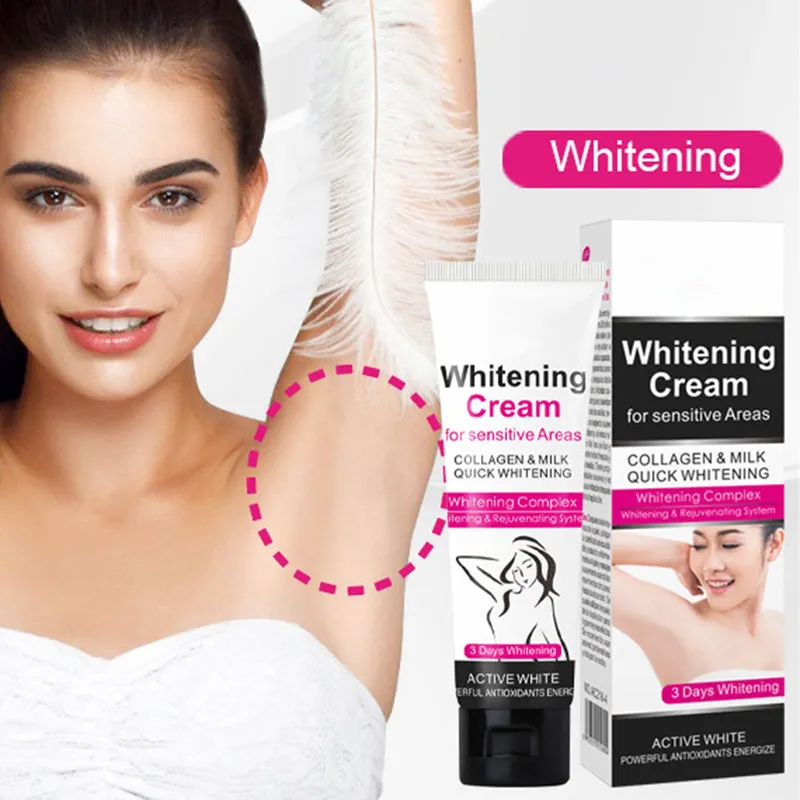
Sunscreen protects your skin from the harmful effects of ultraviolet (UV) radiation. UV rays can damage skin cells, leading to premature aging, wrinkles, and skin cancer. Additionally, UV exposure can stimulate melanin production, which can worsen hyperpigmentation and dark spots. Sunscreen acts as a barrier, absorbing or reflecting UV rays and preventing them from reaching the skin. Consistent sunscreen use is crucial for maintaining an even skin tone and protecting your skin from long-term damage. By using sunscreen daily, you are not only protecting your skin but also enhancing the effectiveness of your whitening treatments. A photo or graphic illustrating sun damage can be used here.
How to Apply Sunscreen Correctly
To get the full benefits of sunscreen, it must be applied correctly. Apply a generous amount of sunscreen to all exposed skin at least 15 minutes before sun exposure. Use approximately one ounce (a shot glass full) to cover the entire body. Reapply sunscreen every two hours, or more often if you are swimming or sweating. Don’t forget areas like the ears, the back of the neck, and the tops of your feet. Sunscreen should be used as a part of your daily skincare routine. Apply it after your moisturizer and before makeup. Correct application ensures that your skin is well-protected from the sun and your whitening cream is working as it should. An image of a person applying sunscreen in detail can be added here.
Additional Tips for Whitening Cream Users
Incorporating whitening creams into your skincare routine requires consistency and patience. Here are some additional tips to help you maximize the results of your whitening cream and maintain healthy, glowing skin. Integrating these strategies into your routine will give you the best possible outcomes. Taking care of your skin also includes drinking water, eating healthy, and getting enough sleep. By following these tips and combining them with your whitening cream, you’ll get the best results.
Consulting a Dermatologist
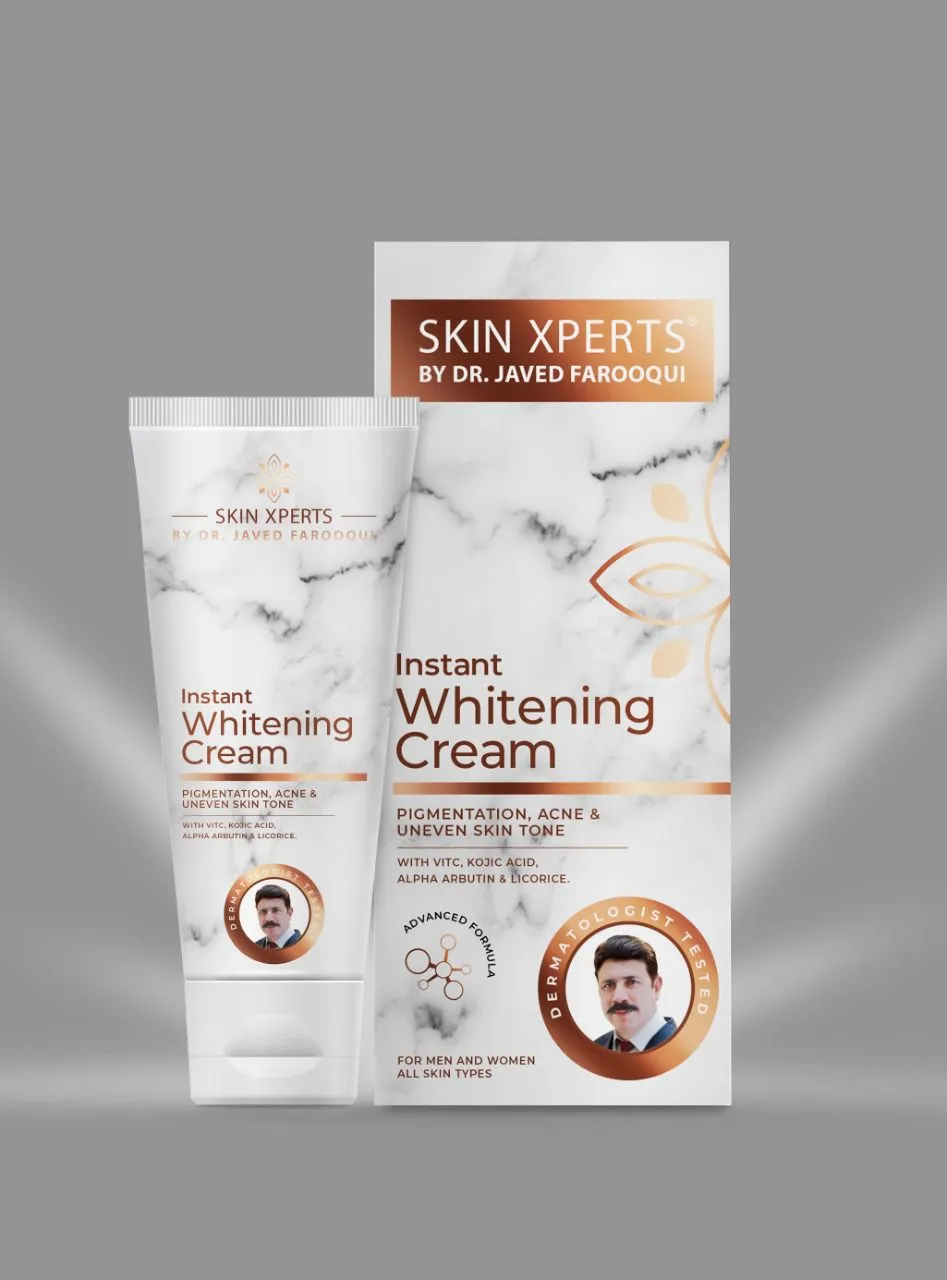
Consulting a dermatologist is a wise decision if you have specific skin concerns, such as persistent hyperpigmentation, acne, or sensitive skin. A dermatologist can assess your skin, diagnose the underlying causes of your concerns, and recommend the most appropriate treatment plan. They can prescribe stronger whitening creams or other treatments like chemical peels and laser therapy, if needed. A dermatologist can also provide valuable insights into your skincare routine, helping you achieve the best possible results. If you are unsure about which ingredients to use or if you are experiencing adverse reactions, consulting a dermatologist will provide you with expert advice. A picture of a dermatologist or a patient during consultation can be added here.
Patience and Consistency
Whitening creams generally take time to show visible results. Be patient and consistent with your skincare routine. It may take several weeks or even months to see a significant improvement in your skin tone. Avoid the temptation to use excessive amounts of product or to switch products frequently. Consistency is key to achieving the desired outcomes. Make it a habit to apply your whitening cream daily as directed, and integrate it into your morning and evening skincare routine. Track your progress with photos to monitor changes. This helps to manage expectations and maintain motivation. The image here can be a calendar showing a routine or a person who is taking pictures to track the results.
Maintaining a Healthy Skincare Routine
A holistic approach to skincare involves more than just applying whitening creams. It is essential to adopt a healthy skincare routine to support your skin’s overall health and radiance. This includes gentle cleansing, regular exfoliation, and the use of hydrating moisturizers. Cleansing your face twice daily removes impurities and prepares your skin for other products. Exfoliating once or twice a week helps remove dead skin cells and improves the absorption of active ingredients. Hydrating moisturizers help to maintain the skin’s moisture barrier. A balanced diet rich in vitamins and antioxidants, along with adequate hydration, will also enhance your skin. The image here can be a detailed illustration of a complete skincare routine.
